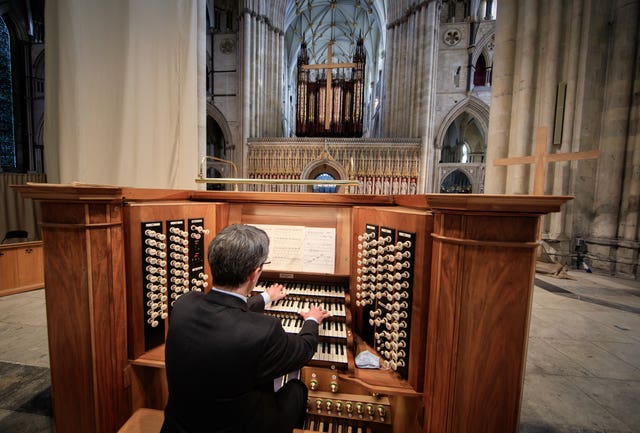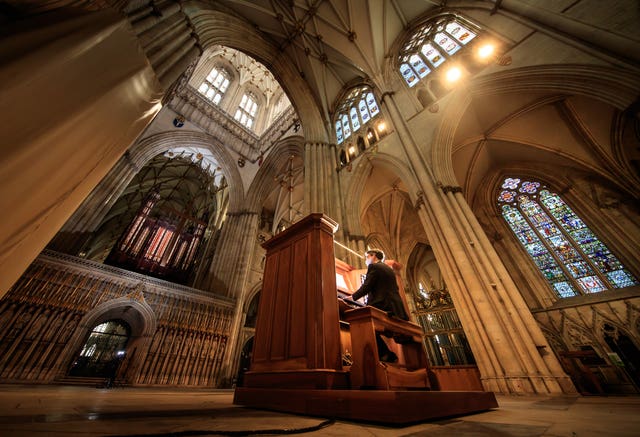York Minster organ to be played again after ‘once-in-a-century’ refurbishment
The instrument dates from the early 1830s and has been out of action since 2018.

York Minster’s Grand Organ is to be played during worship for the first time in more than two years after a £2 million “once-in-a-century” refurbishment.
A prayer will be said for the organ during the cathedral’s livestreamed Eucharist service on Sunday morning before it is played in a service for the first time since 2018.
The organ, including nearly all of its 5,000-plus pipes, was dismantled after it was last played in October 2018.
It was taken to specialists for cleaning, repair and replacement in what the Minster described as a “once-in-a-century” operation.
The work has included bringing the majority of the organ’s 102 decorative case pipes back into use, which have been silent since the last major refurbishment in 1903.

“It will be a gentle return in March due to the solemnity of the season of Lent, but building to a celebration on Easter Day when the organ will be dedicated by the Archbishop of York.
“The refurbishment preserves the unique sound of the Minster’s organ whilst renewing its mechanism.
“Work has included bringing many of the 102 case pipes which have been silent since 1903 back into use and restoring the grander, imposing qualities of the instrument which were altered during work in the 1960s.”

Between November last year and February, experts worked to “voice” the organ, a process which involves making sure the thousands of pipes play the correct note, pitch and volume.
Mr Sharpe said: “Organ music has played a central role in worship at York Minster for nearly 1,000 years and we hope this project will help ensure that tradition continues throughout the 21st century and beyond.”





